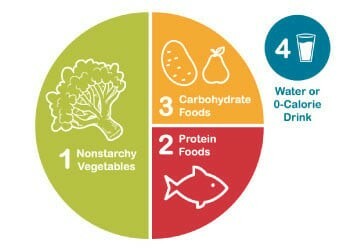Education 11 November 2022
Diabetes Awareness Month
Written by Angelis Medina
Diabetes is a condition that is characterized by high blood sugars, stated by Ivinson hospital’s very own registered dietician, Jenna Chalcraft.

Diabetes is a condition where your body stops turning the food you eat into energy. This happens when your body cannot produce enough insulin to control your blood sugar, which then results in high or low blood sugars. According to the Center Of Disease Control, insulin helps the body’s blood sugar enter into the cells for energy.
Types of Diabetes
Type 1 diabetes is suggested to be an autoimmune disease that has a complete insulin deficiency. This type of diabetes cannot be prevented and are usually first diagnosed in children, teens and young adults.
Prediabetes is the precursor before reaching type 2 diabetes and often happens gradually over 5 – 10 years. Prediabetes happens when blood sugars are higher than normal, but not high enough to be classified as type 2 diabetes.
Type 2 diabetes is the most common diabetes, which is a combination of your body having both insulin resistance and insulin deficiency. This often is diagnosed in individuals over 45 and is often associated with a sedentary lifestyle, being overweight, or obese. Risk factors for type 2 diabetes include certain ethnic backgrounds and genetic inheritability. Ethnic backgrounds that are higher risk include: Native Americans, Hispanics, Pacific Islanders, and Asian Americans. Type 2 diabetes has a 50% inheritability rate. Individuals with a family history of diabetes are at higher risk of developing type 2 diabetes in their lifetime.
Gestational diabetes is diagnosed in pregnant women that have never had diabetes and causes a higher risk for the baby to become type 2 diabetic later in life.
Nutritional Benefits for Patients with Diabetes/Pre-Diabetes
“Diet is extremely important for managing diabetes and preventing diabetes,” Jenna said.
There are many diets out there for individuals with diabetes or pre-diabetes to succeed. Individuals with diabetes are often recommended a diet that helps lower their carbohydrate intake. Jenna states that Mediterranean diet is good for preventing diabetes or for patients with diabetes. Vegetarian and vegan diets can also be good beneficial diets for individual with type 2 diabetes.
Jenna states that following a strict diet, and counting carbs are extremely beneficial, but difficult. Through the diabetes program at Ivinson they use the “Idaho Plate Method”. The Idaho Plate Method is simple to use and a great diet mechanism for patients with pre-diabetes and diabetes.

Being Active for Patients with Diabetes or Pre-Diabetes
“Exercise is extremely important because it will actually drive glucose into the cell without insulin,” Jenna said.
This is an important aspect because having diabetes causes you to have an insulin deficit or resistance. When you work out, you don’t need insulin to do its normal task of driving glucose into the cell wall to regulate your blood sugars. Instead, working out will allow your body to do this without relying on insulin.
Being creative to find what works for you, will make the process of exercising more enjoyable. Jenna suggests 150 min of mild to moderate exercise and not going more than 2 days without exercising.
Education, Support, and Resources Ivinson Offers
Ivinson’s Diabetes Self-Management Clinic is an American Diabetes Association recognized program.. The program follows a curriculum that helps patients that are living with diabetes.
Services Offered:
- Individual Appointments teaching management skills
- Instruction on self-monitoring of blood glucose
- Oral Medications
- Insulin Therapy
- Individualized meal Planning
- Carbohydrate counting and/ or plate method
- Weight management
- Hemoglobin A1C Test
- Foot Screening
- Reducing risk of diabetes-related complications
- Diabetes care during illness
- Community resources
Classes offered come in an increment of 4 to individuals that recently got diagnosed with diabetes or are new to managing a life with diabetes.
The classes include:
- Managing blood sugars and the understanding of blood sugars
- Individualized meal planning, calculating/counting carbs, and portion sizing
- Living with diabetes and what that looks like
- Heart healthy diet education and how to lose weight
In order to be able to be enrolled in the classes/services you need to get a referral from your physician and then Ivinson clinic will call to schedule. Once you have been involved in any of Ivinson Diabetes services/classes your dietician will call to check in every month for up to a year, to listen to any progress or questions you may have.
To get connected to Ivinson diabetes services visit Ivinson’s Diabetes Self-Management page or call the Diabetes clinic at (307)-755‑4640.